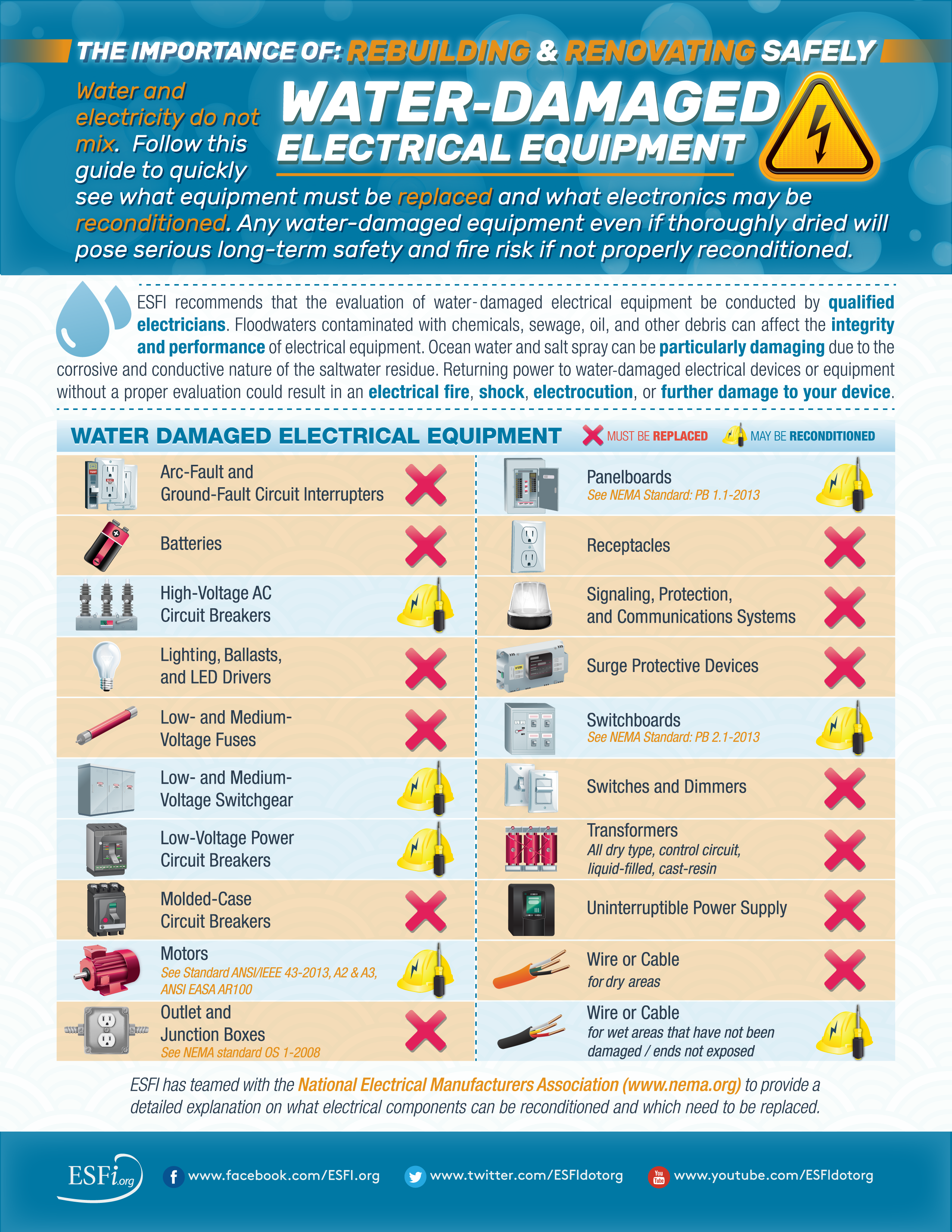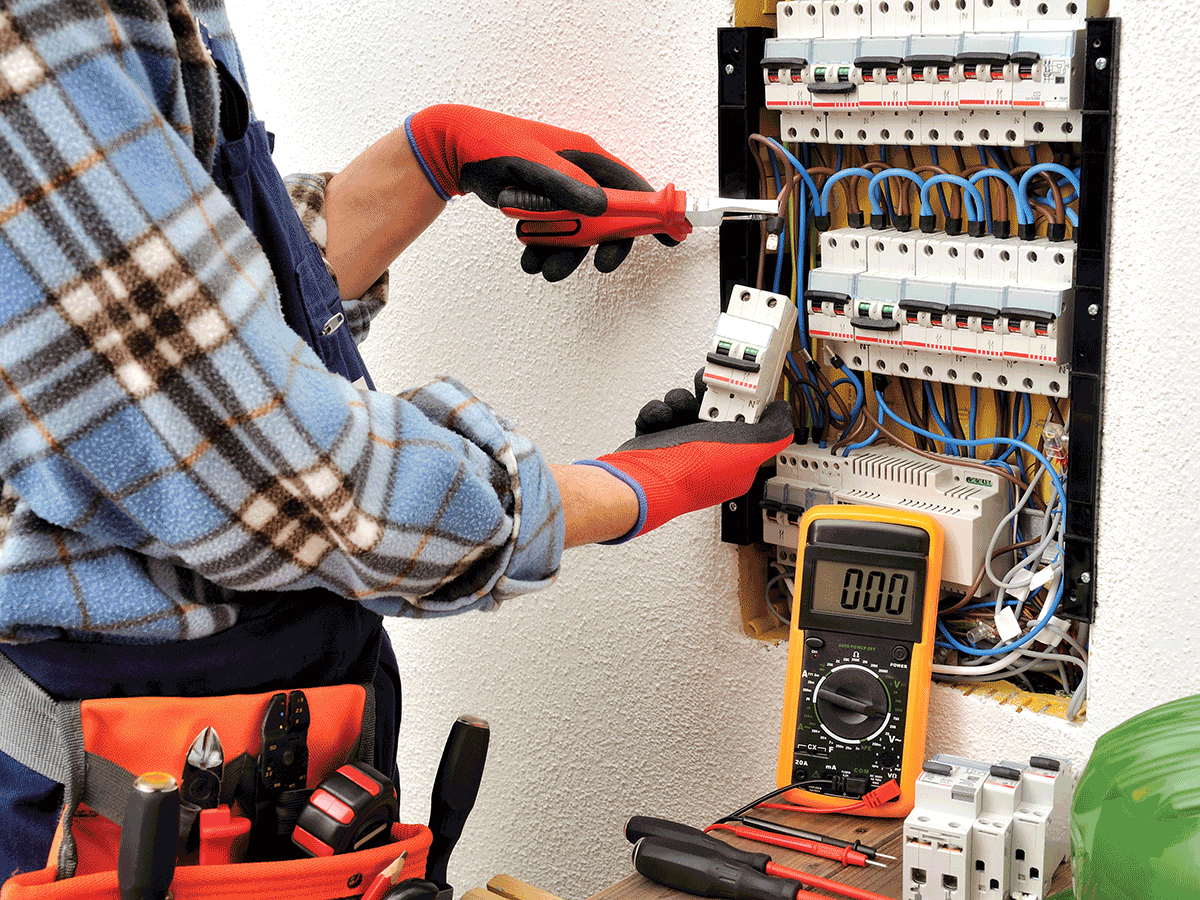Water and electricity do not mix. Follow this guide to quickly see what equipment must be replaced and which electronics may be reconditioned. Any water-damaged equipment even if thoroughly dried will pose serious long-term safety and fire risk if not properly reconditioned.
ESFI recommends that the evaluation of water-damaged electrical equipment be conducted by qualified electricians. Floodwaters contaminated with chemicals, sewage, oil, and other debris can affect the integrity and performance of electrical equipment. Ocean water and salt spray can be particularly damaging due to the corrosive and conductive nature of the saltwater residue. Returning power to water-damaged electrical devices or equipment without a proper evaluation could result in an electrical fire, shock, electrocution, or further damage to your device.
Water damaged equipment that must be replaced:
- Arc-Fault and Ground-Fault Circuit Interrupters
- Batteries
- Lighting, Ballasts, and LED Drivers
- Low and Medium Voltage Fuses
- Molded-Case Circuit Breakers
- Outlet and Junction Boxes
- Receptacles
- Signaling, Protection, and Communications Systems
- Surge Protective Devices
- Switches and Dimmers
- Transformers
- Uninterruptible Power Supply
- Wire or Cable (for dry area)
Water damaged equipment that may be reconditioned:
- High Voltage AC Circuit Breakers
- Low and Medium Voltage Switchgear
- Low-Voltage Power Circuit Breakers
- Motors
- Panelboards
- Switchboards
- Wire or Cable (for wet areas that have not been damaged/ends not exposed)
ESFI has teamed with the National Electrical Manufacturers Association to provide a detailed explanation on what electrical components can be reconditioned and which need to be replaced.











Find Us on Socials